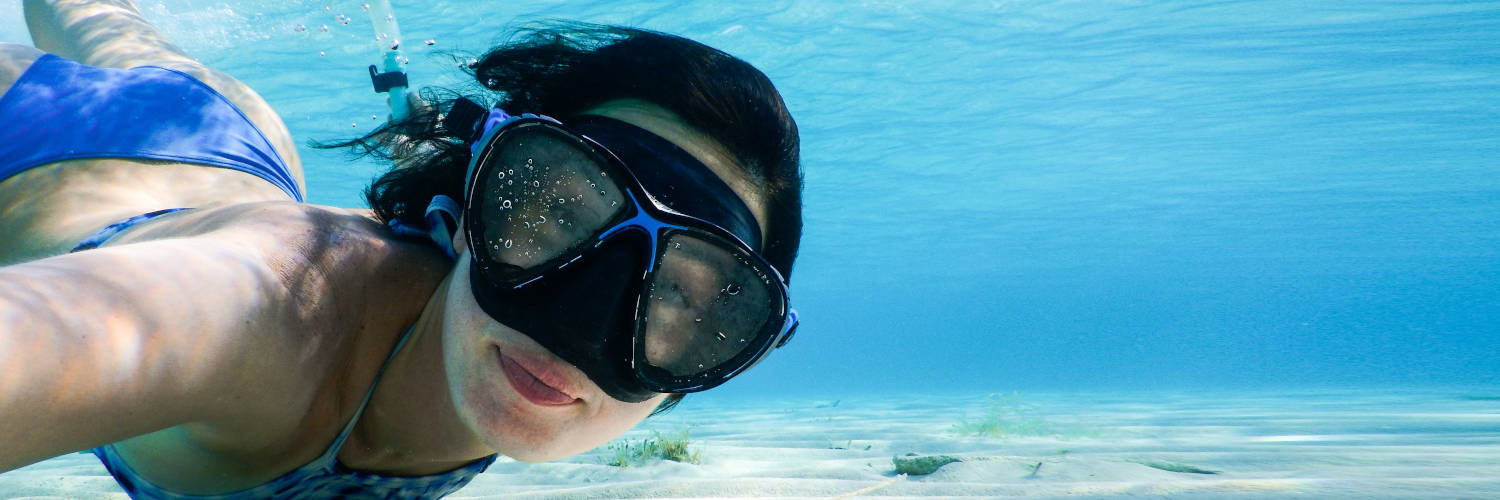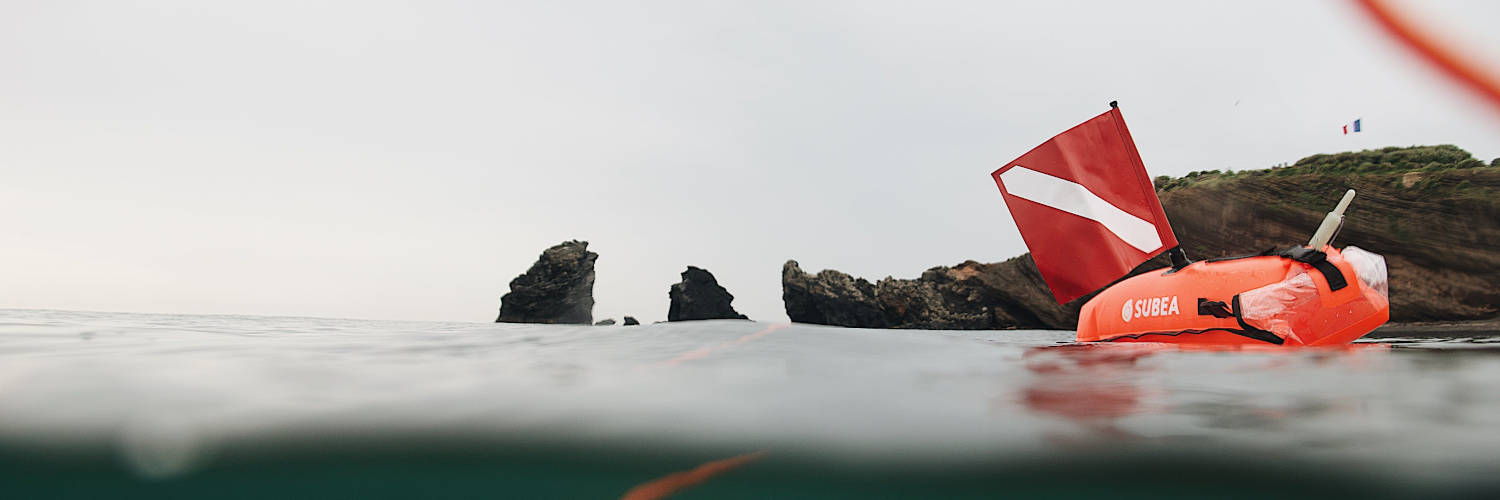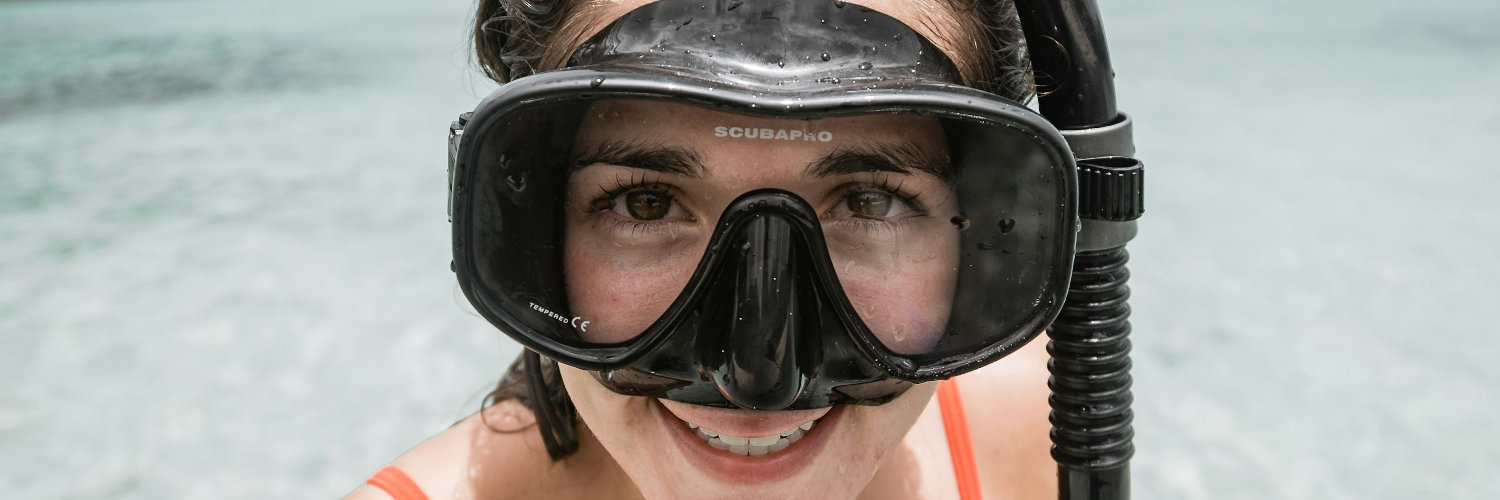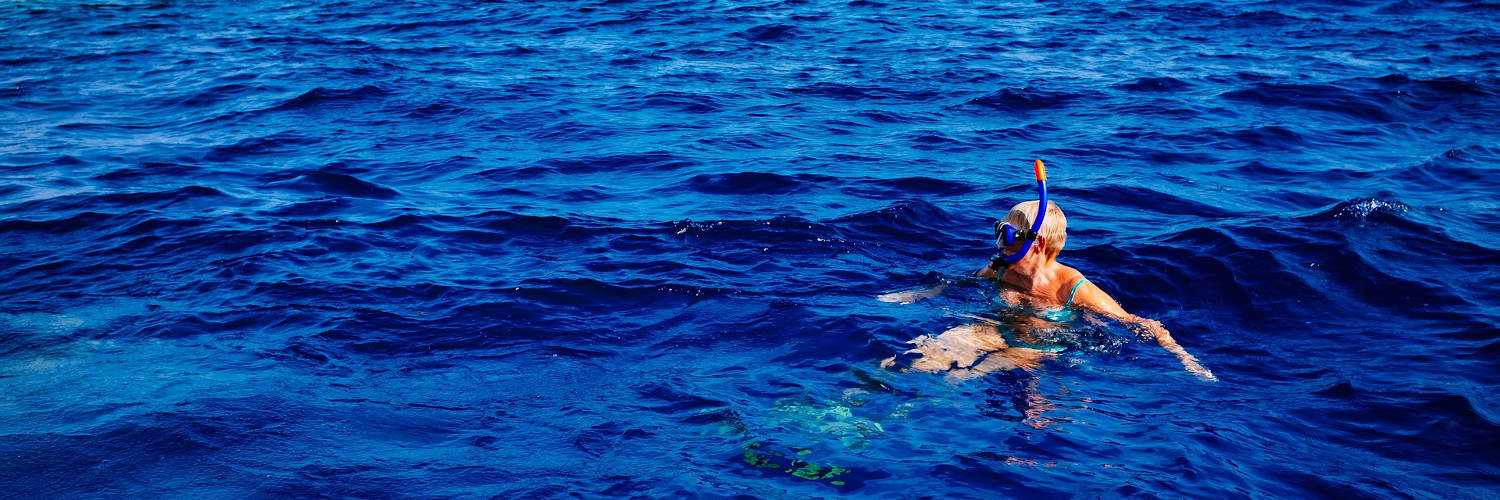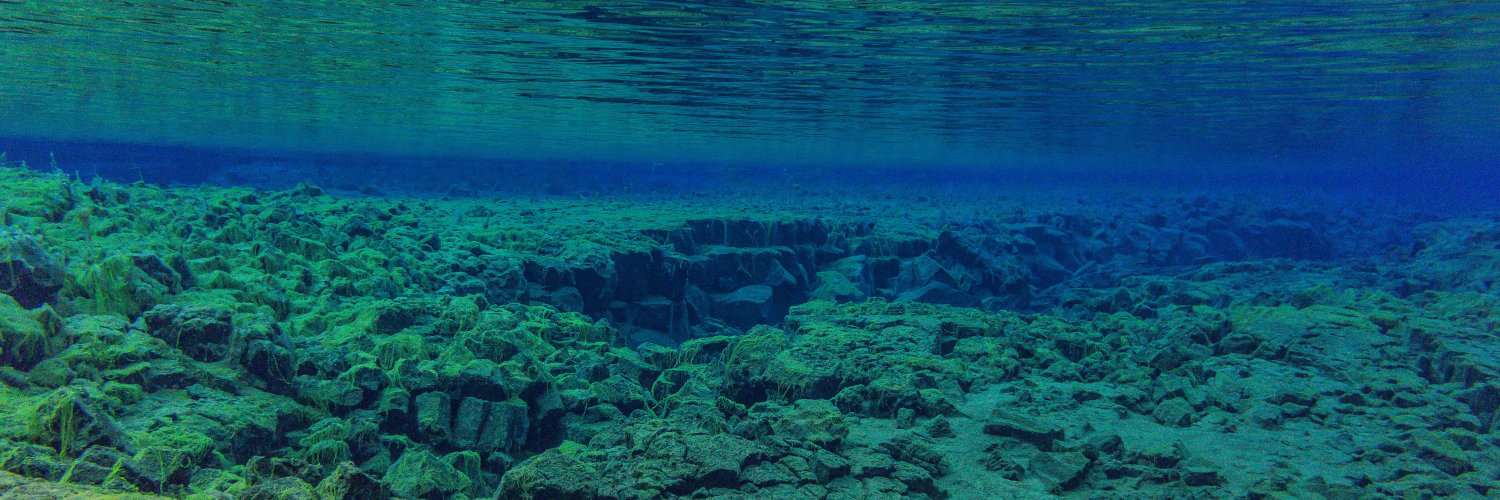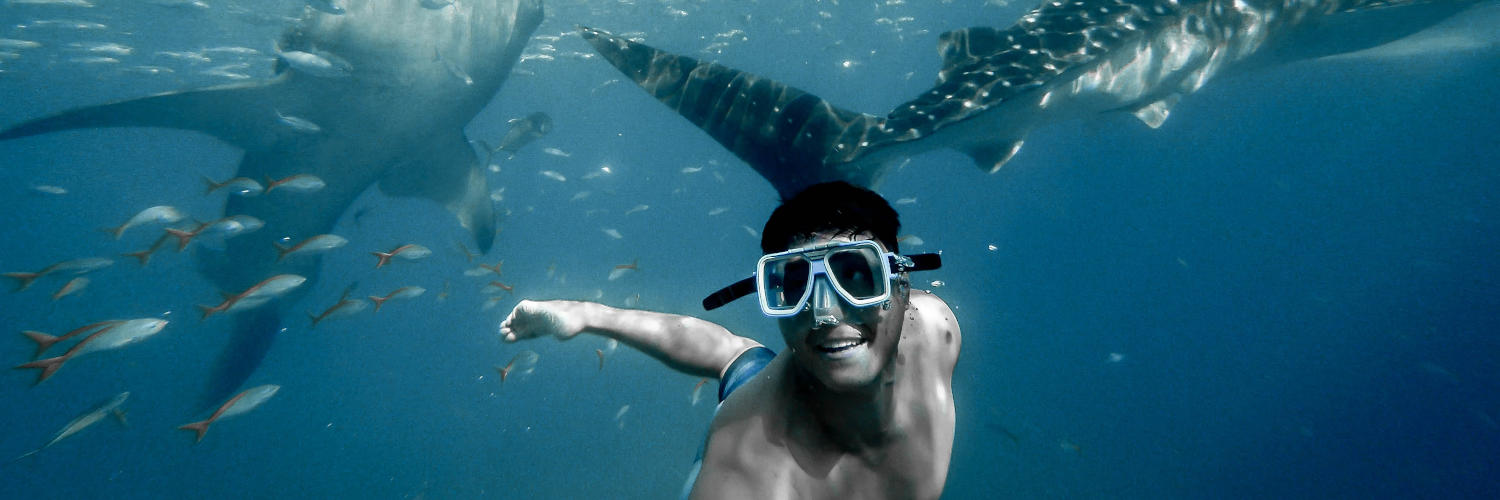Swollen lips can be an unexpected and uncomfortable outcome of snorkeling, an activity enjoyed by many for its ability to offer a glimpse into the vast and colorful underwater world. While often considered a benign and low-impact sport, snorkeling can sometimes result in physical irritations, with lip swelling being among the less common yet notable issues. The thing might worry those who see it suddenly after exploring the sea.
The swelling of lips after snorkeling can stem from a few causes, such as allergic reactions, irritation from saltwater, or sensitivity to the snorkeling gear’s materials. For instance, a new snorkel mouthpiece may introduce unfamiliar substances to which a person’s skin and lips may react adversely. Also, being in saltwater for a long time can make your skin and lips dry and may cause them to swell and get red. This can be painful and uncomfortable, so it’s important to protect your skin and lips from too much saltwater exposure.
It’s important for snorkelers to be aware of these potential risks and to know how to address them. Knowing what makes people feel sick underwater helps everyone avoid it and have a good time without feeling bad. Simple steps, such as using hypoallergenic gear or protecting the lips with balms, can be significantly beneficial.
Understanding Snorkeling Swollen Lips
Swollen lips after snorkeling can be distressing, presenting symptoms such as inflammation, discomfort, or even pain. The swelling is typically a reaction to physical irritation or allergenic substances. People might see redness, itching, or skin irritation on the face around the lips.
Common Causes:
- Allergic Reaction: Touching rubber or other things in a snorkel’s mouthpiece can cause an allergy, causing puffiness.
- Sun Exposure: The skin on the lips is sensitive and can swell due to prolonged exposure to the sun’s rays without adequate protection.
- Saltwater: Saltwater can dry out and irritate the lips, especially if they are chapped before snorkeling.
Symptoms to Identify:
| Symptom | Description |
|---|---|
| Swelling | Puffy or enlarged lips beyond normal size |
| Redness | Discoloration indicating irritation or increased blood flow to the area |
| Itching | An uncomfortable sensation that invokes the desire to scratch |
| Pain | Physical discomfort ranging from mild to severe |
When these symptoms are present, they likely indicate that the lips have reacted negatively to an aspect of the snorkeling experience. If swelling is severe or accompanied by difficulty breathing, immediate medical attention is necessary as it may signify anaphylaxis, a serious allergic reaction.
Management Tips:
- Rinse the lips with fresh water to remove any salt or potential allergens post-snorkeling.
- Apply a moisturizing balm with SPF to protect and soothe the lips.
- If the swelling is due to an allergic reaction, antihistamines may help reduce symptoms.
If swollen lips after snorkeling persist or worsen, one should consult with a healthcare provider to rule out other potential causes or to receive treatment for an allergic reaction.
Common Causes of Lip Swelling
A puffy lip after snorkeling can happen from things in the sea or from pre-existing issues that react to certain things. Knowing the usual reasons is important for stopping it and treating it in the right way.
Allergic Reactions
Lip swelling can often be attributed to allergic reactions. These reactions may occur due to:
- Food allergies: Snorkelers with food allergies might inadvertently ingest traces of allergens like fish or shellfish, which are prevalent in seaside settings.
- Pollen: Despite being a primarily water-based activity, snorkelers might be exposed to airborne pollen near the shore, which can trigger allergic reactions.
- Insect bites or stings: Bugs like bees or jellyfish close to the water can sting people who swim, especially in the lips.
Allergies can quickly become anaphylaxis, a very serious condition with fast and weak pulse, needing instant help with epinephrine.
Injuries and Infections
Injuries and infections can also lead to swollen lips. This includes:
- Physical injury: Mouth bump or cut with snorkeling gear can make lips swell.
- Infections: Germs, like bacteria and viruses, can cause swelling lips. For instance, cold sores can cause this.
This is extra important in the ocean where tiny life grows.
Snorkelers should take pre-emptive measures to avoid injury and be cautious of potential marine hazards that could cause infections or physical harm to the lips.
Identifying Serious Symptoms
When embarking on a snorkeling adventure, it’s essential to recognize serious symptoms that could indicate a potentially life-threatening condition as a result of an allergic reaction. Observant snorkelers will quickly address these concerns to ensure safety.
Anaphylaxis Signs
Anaphylaxis is a rapid allergic reaction that can be life-threatening. Key signs to watch for include:
- Difficulty Breathing: If someone experiences shortness of breath or a tightness in the chest, these may be signs of the airways narrowing.
- Swollen Tongue or Throat: This can make breathing worse and is a clear sign of a serious allergy.
- Shock or Low Blood Pressure: Sudden lightheadedness, confusion, or fainting can indicate shock due to low blood pressure, a critical situation.
In the event of anaphylaxis, it’s important to administer epinephrine quickly, as it counteracts the severe allergic reaction.
Angioedema Indications
Swelling deep under the skin is called angioedema. It happens around the eyes and lips, and sometimes on the private parts, hands, and feet.
- Swollen Lips or Eyes: Noticeable puffiness or swelling of the lips, beyond what might be expected from minor irritation, should be monitored carefully.
- Sudden Onset: Angioedema can occur rapidly, often as a part of an overall allergic reaction, causing concern.
People with swelling may need medicine to stop the body’s overreaction that causes the swelling. This overreaction lets out histamine and other stuff that makes the body swell.
Treatment Options
To fix puffy lips from snorkeling, do two things. First, do things right away to make the swelling and pain better. Then, plan for the long term to stop it from happening again.
Immediate Interventions
To quickly treat puffy lips from snorkeling, try this:
- Cold Compress: Use a cold pack to lessen the swelling and numb the sore spot.
- Antihistamines: Swelling from allergies could be made better with over-the-counter medicine.
When symptoms suggest anaphylaxis, such as difficulty breathing or a rash spreading beyond the lips, immediate medical attention is crucial. The administration of epinephrine as an emergency intervention for severe allergic reactions is often lifesaving.
Long-Term Management
Ways to handle lip swelling from snorkeling in the long run may involve:
- Medications Adjustment: Collaborate with a healthcare provider to alter any medications that could lead to swelling.
- Corticosteroids: For chronic inflammatory conditions, a doctor may prescribe corticosteroids to manage symptoms.
- Allergen Identification: It’s important to find out what might cause allergies with snorkeling equipment or in the ocean to prevent future reactions.
Patients must talk clearly with doctors for best care and stopping sickness.
Prevention and Best Practices
When snorkeling, one may experience swollen lips due to various factors. It is crucial to take preventative measures to avoid such discomforts.
Allergens: Individuals should be aware of common allergens such as latex, often found in snorkel mouthpieces, and food allergies, which might include eggs, shellfish, milk, wheat, soy, nuts, and antibiotics like penicillin. It is recommended to avoid such foods and products if one has a known sensitivity.
| Allergens to Consider | Example |
|---|---|
| Food Allergies | Nuts, Shellfish, Soy, etc. |
| Materials Sensitivity | Latex in mouthpieces |
| Environmental | Pollen allergies |
Sun Protection: Put on water-proof sunblock before snorkeling. This stops lip swelling from too much sun.
Medical Devices:
- Individuals who are sensitive to certain materials should check medical devices like snorkels for hypoallergenic labels.
- If one has a history of reactions or sensitive skin, they should consult a healthcare professional for medical advice.
In Water Practices:
- If water enters the ears or if there is discomfort due to water distortions, one should gently clear it out to avoid further complications.
- Knowing about what’s around you, like the weather, can help find a good spot for safe snorkeling.
Snorkelers should always be mindful of their health conditions, and in the case of any adverse reactions or uncertainties, seeking professional medical advice is paramount.
